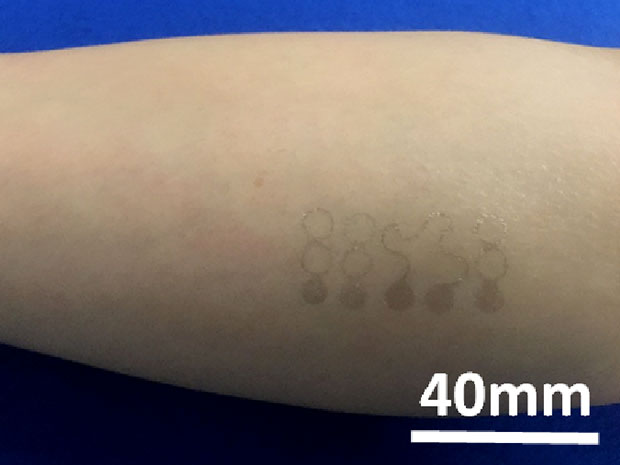Measuring electrical signals from the heart, muscles and brain has never been so inconspicuous.
Researchers at the University of Austin are developing a graphene health sensor that adheres to the skin like a temporary tattoo. Only an atom thick, the devices are the thinnest epidermal electronics ever made, capable of the same functions as clunky medical equipment without any of the bulk. As sensors become more prominent in healthcare, this breakthrough could allow for comfortable, discrete, wire-free vital monitoring.
Graphene is a metamaterial often praised for its mechanical toughness, flexibility, and superconductivity. On skin, it’s practically invisible, conforming to the skin’s exact ridges. Patients can barely feel it, and it doesn’t confine them to a room, meaning they can go about their day while the device collects data.
How did they do it? Researchers began by growing the graphene on copper to create a 2D carbon sheet, which is coated with polymer. The copper is then etched off, after which the remaining sheet placed on temporary tattoo paper and the graphene carved into electrodes. Now, just like a temporary tattoo, the device can be applied by placing the sheet on skin and applying moisture to its back.
So far, the devices can perform five types of measurements, in some cases even better than more traditional medical equipment used to perform EKGs and EEGs. The incredible quality of its measurements may be due to how closely it sticks to the skin, reducing air gaps that could throw off accuracy.
On top of muscle, heart, and brain measurements, the device can also measure skin hydration and skin temperature. These latter two capabilities will likely be of interest to consumer cosmetics companies.
Once an antenna is added, the device should be able to beam the information to a phone or computer. The possibilities after this really are endless, as similar tattoos could be used to deliver drugs or detect glucose levels. These “tattoos” would essentially be moving display screens that stick on skin—which is pretty cool, with or without the added bonus of healthcare functionality.

